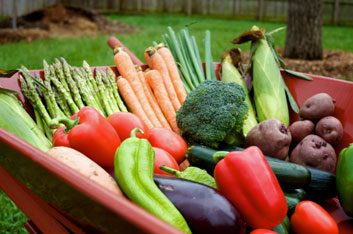
1. When you buy organic, you are guaranteed:
a) food that is safer and free of pesticide residues
b) food that has been grown following a strict set of guidelines that control what’s used on crops and done to animals
c) food that is as natural and as healthy as possible
Answer >>
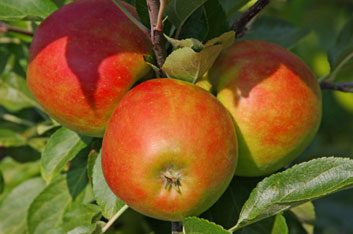
Answer: B. Food that has been grown following a strict set of guidelines that control what’s used on crops and done to animals.
Organic farming is a process; there’s no guarantee that the food produced is healthier or safer. Organic farmers use no synthetic chemicals, rotate crops to protect the soil and let animals live in conditions that are as close to natural as possible. This process can result in foods with fewer pesticide residues. Some studies suggest organic products can be healthier, but an organic label doesn’t promise these things.

2. Canada’s new certified organic label is called:
a) Certified Organic OCIA (Organic Crop Improvement Association Canada)
b) Quality Assurance International
c) Canada Organic
Answer >>

Answer: C. Canada Organic
Canada’s new label and certification system-identifiable by a logo with a maple leaf rising behind two hills-came into effect in June 2009. It’s intended to help consumers more easily identify organics, and to help Canadian farmers and manufacturers sell their wares overseas more easily. To meet the requiements of the Canada’s Organic Products Regulations, products must meet production requirements and contain at least 95 percent organic content. They may then be lablled “organic” and carry the Canada Organic logo. The regulations apply to both imprted and Canadian products.
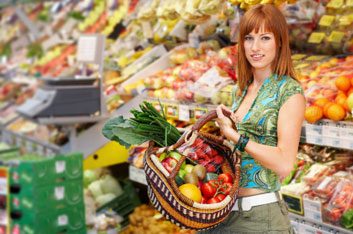
3. Regardless of whether you buy organic or conventional, which of the following have the most pesticide residue?
a) Avocado, bananas and watermelon
b) Peaches, apples, peppers and celery
c) Onions, corn and mangoes
Answer >>
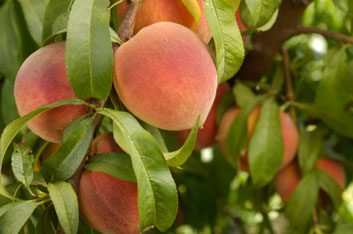
Answer: B. Peaches, apples, peppers and celery
In studies by the Environmental Working Group in the U.S., these fruits and vegetables had the highest pesticide residue levels. Onions, corn and mangoes were at the bottom of the list. Residues are also less of an issue on foods like bananas, which have a thick peel. Always rinse your produce-whether organic or conventional-for a few minutes under the tap (forget veggie washes; regular water is just as good), because that will remove some residue, as well as dirt and bacteria. Avoid peeling foods such as apples and potatoes, says Ellen Desjardins, a registered dietitian in Waterloo, Ont., as that’s where you’ll find most of the nutrients.

4. Is organic food more likely to be free of contaminants such as E. coli and salmonella?
a) No; organic farmers can’t control how water, soil and handling errors can contaminate food.
b) Yes; organic farm practices are so controlled, they make sure no mistakes are made that might contaminate food.
c) No; in fact, the use of composted manure as fertilizer on organic farms may put this food at a higher risk

4. Is organic food more likely to be free of contaminants such as E. coli and salmonella?
a) No; organic farmers can’t control how water, soil and handling errors can contaminate food.
b) Yes; organic farm practices are so controlled, they make sure no mistakes are made that might contaminate food.
c) No; in fact, the use of composted manure as fertilizer on organic farms may put this food at a higher risk

Answer: A. No; organic farmers can’t control how water, soil and handling errors can contaminate food.
In terms of their microbiological safety, there is no evidence to suggest that organically farmed products are inherently safer than conventionally farmed products,” says Mansel Griffiths, director of the Canadian Research Institute for Food Safety in Guelph, Ont. In fact, a 2006 E. coli outbreak resulted in a recall of many farm products, including organic spinach. Manure on organic farms doesn’t pose a higher risk, however, as many farms, organic and conventional, use composted manure. Also, food can be contaminated at various points along the food chain.
You can get more information about food and product advisories, warnings and recalls at healthycanadians.gc.ca.
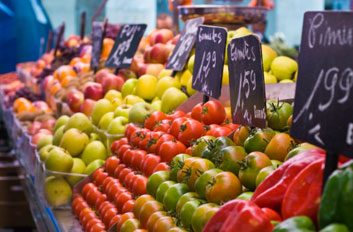
5. What’s the relationship between organic food and local food?
a) Organic is more likely to be grown locally.
b) Organic is least likely to come from nearby.
c) There is no inherent relationship between the two.
Answer >>
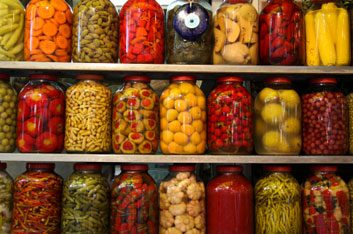
Answer: C. There is no inherent relationship between the two.
Experts estimate that we import around 85 percent of our organic food and much of our conventional food. Organic products can be found in health food stores, farmers’ markets and large grocery stores year-round. To better source local foods, order from a vegetable box delivery service that focuses on local, or shop at a farmers’ market. If you’re really serious about eating local, only seek out produce that’s in season (that means no fresh strawberries in the winter, so get canning and freezing!).

6. Organic foods are more nutrient dense than conventionally grown foods by what percent?
a) 25 percent
b) 17 percent
c) They were not found to have more nutrients.
Answer >>

Answer: A. 25 percent
In an analysis by The Organic Center in Rhode Island, researchers reviewed 97 published studies on organic food, and found that of the produce tested, plant-based organics overall were 25 percent more nutrient dense. But to get dramatic nutritional benefits, you need to eat a wide range of organics daily. Desjardins says eating seven to 10 servings of fruits and vegetables daily (of either conventional or organic food) will help keep you healthier. Note that processed organic foods can still be high in calories, salt and sugar.
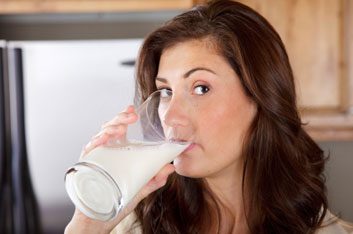
7. According to a 2007 study from Newcastle University in the U.K., organic milk is:
a) lower in pesticide residue than regular milk
b) higher in healthful conjugated linoleic acids (CLA) and antioxidants
c) higher in protein content
Answer >>
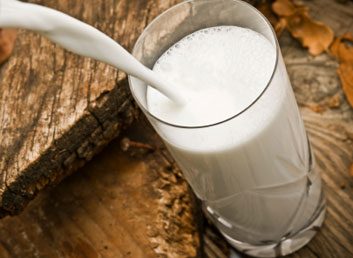
Answer: B. Higher in healthful CLA and antioxidants
The study found that organic milk has 60 percent more conjugated linoleic acid, a type of fat that is associated with reducing cancer risk and facilitating weight loss. Consider buying organic milk only if you can shoulder the extra cost: It runs about $1 more per two-litre carton. (Neither conventional nor organic milk contains bovine growth hormones, which are illegal in Canada.)
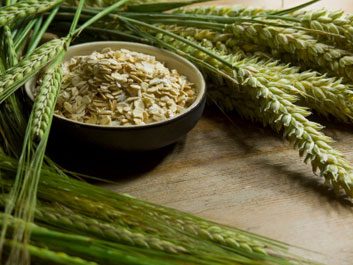
8. Compared to conventional products, organic cereal grains contain:
a) more protein
b) the same amount of protein
c) less, but better-quality, protein
Answer >>
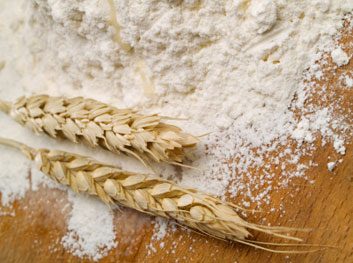
Answer: C. Less, but better-quality, protein.
The more nutritionally complete, higher-quality protein in organic grains is a benefit only for vegetarians and vegans who might not be getting enough protein in their diet already. “For most non-vegetarians, the protein quality of our diet is already excellent. We eat twice as much as we need,” says Milly Ryan-Harshman, a registered dietitian from Oshawa, Ont.
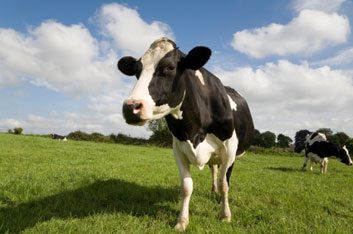
9. When you buy organic meat, you can be sure you’re getting:
a) meat that is leaner and with more health benefits than conventional meat
b) meat from animals that were treated more humanely, fed organic food and not given antibiotics
c) the same product as one labelled “natural meat”
Answer >>
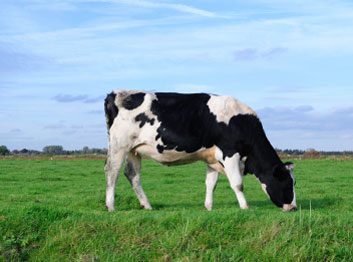
Answer: B. Meat from animals that were treated more humanely, fed organic food and not given antibiotics.
Organically raised animals graze as they would in nature, are fed organic feed, never eat animal by-products and don’t receive antibiotics. (If they ever receive them due to an illness, they can no longer be sold as organic.)
Related:
• 8 secrets to shopping at farmers’ markets
• 9 ways to save money on groceries
• Green beatuy: What the labels mean
